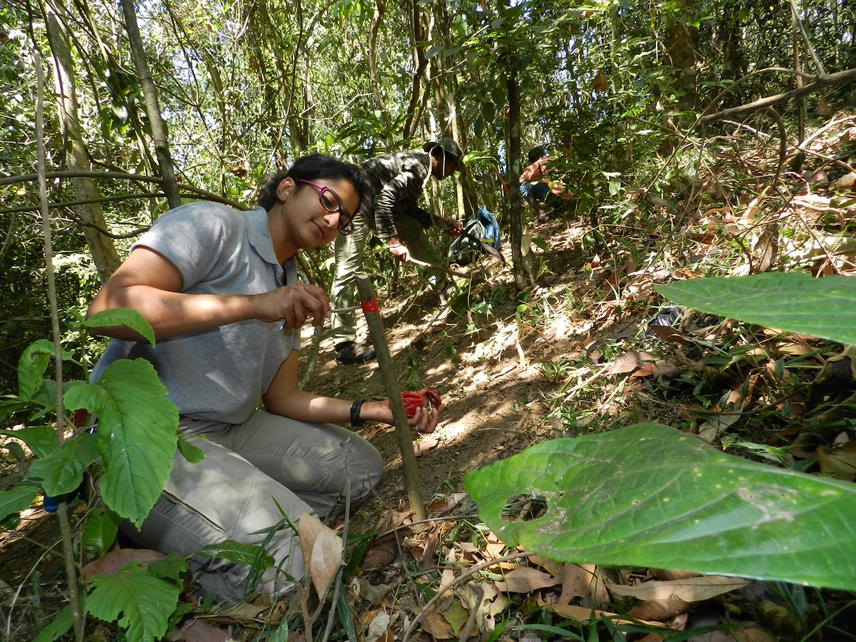Anand Mandyam Osuri
Other projects
10 Nov 2010
Conservation Implications of Fragmentation and Logging Impacts on Carbon Storage Ecosystem Services in the Western Ghats, Southern India
22 Mar 2012
Understanding the Drivers of Losses in Carbon Storage Ecosystem Services Provided by Tropical Forest Fragments in India’s Western Ghats
12 Sep 2023
Partnering with Private Landowners to Expand Native Tree Nurseries and Restore Tropical Rainforests in India’s Western Ghats Biodiversity Hotspot
Ecological restoration is recognized as an important tool for sustaining biodiversity conservation and ecosystem services such as carbon sequestration in human-dominated tropical forests. Our project in India’s Western Ghats biodiversity hotspot aims to (1) evaluate the recovery of forest structure, tree community composition and carbon sequestration in restored tropical rainforests, with particular focus on large, old-growth tree species, and (2) spread awareness and strengthen capacity for ecological restoration and monitoring among practitioners, land owners and researchers.

This project will be conducted in the Anamalai hills, one of the most significant conservation areas within the Western Ghats biodiversity hotspot in southern India. The main focus is on the Valparai plateau (10.30° N, 76.95° E): a 220 km² landscape with tea and coffee plantations and over 45 tropical rainforest fragments (1 ha – 300 ha). Since 2001, project partners Divya Mudappa and TR Shankar Raman of Nature Conservation Foundation (http://ncf-india.org/projects/reviving-the-rainforest) have been working with land owners and administrators to ecologically restore degraded rainforest fragments by planting saplings of multiple native tree species. To date, about 30000 saplings of 150 rainforest species have been planted in 50 ha of degraded rainforests spread across 15 fragments.
Our project will assess the magnitude and rate of recovery of forest structure, stature and carbon storage in degraded rainforest fragments ecologically restored over the last 15 years. Previous research has shown that rainforest fragmentation changes forest structure and reduces tree height-to-diameter ratios, resulting in shorter forest canopies and reduced carbon storage. Our research will explores whether these structural attributes and ecosystem services that characterise intact rainforests can be effectively restored, and assess time-frames for such recovery.
Further, our research will help understand whether and how ecological restoration facilitates natural regeneration of native rainforest species in degraded fragments, focusing particularly on large-statured rainforest tree species. Using a combination of observational and experimental work, we will examine the effectiveness of ecological restoration for overcoming barriers to seed dispersal, establishment and survival of rainforest tree species in formerly degraded areas.
Finally, recognizing the growing interest in ecological restoration among private plantation companies, forest managers, administrators and scientists, we will organize one field workshop and one conference symposium, and produce reference material, on the principle and practice of ecological restoration, based on NCF’s 15+ years of experience and expertise in rainforest restoration in the Western Ghats. These workshops will enhance awareness on the role of ecological restoration in managing fragmented tropical landscapes, and provide training in techniques for long term ecological and carbon monitoring in restored ecosystems.